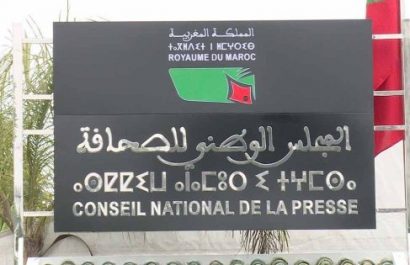Morocco is preparing a major shake-up of how journalism is regulated, with a new legislative proposal that aims to overhaul the country’s National Press Council. During a recent session in the House of Councillors, Mohamed Mehdi Bensaid, the Minister of Youth, Culture, and Communication, unveiled a draft bill designed to reinforce the legal framework guiding the profession. The goal, according to the minister, is to ensure greater transparency, institutional stability, and continuity.
The proposed legislation, identified as Bill 26.25, is rooted in lessons learned from Morocco’s current self-regulation system. It builds on a series of consultations led by a provisional committee created under Law 15.23, which brought together various stakeholders in the media industry through what officials described as a collaborative and participatory process.
This reform doesn’t challenge the Council’s independence or professional mandate, but instead aims to adapt its structure to evolving realities on the ground. The bill retains the Council’s core powers while introducing key changes seen as vital for its modernization. These include a clearer definition of governance-related terms, broader responsibilities, and expanded opportunities for collaboration with institutional partners.
Under the new proposal, Council members would serve five-year terms, renewable only once. Another significant change is the introduction of a legal requirement that all members must hold full civil and political rights—something not stipulated in the current law.
The criteria for dismissal have also been toughened. Members found guilty of crimes such as corruption, fraud, drug trafficking, terrorism, sexual offenses, or treason will be subject to immediate removal. Losing civil rights or no longer meeting the original conditions of appointment would also lead to disqualification. Importantly, the power to revoke membership would now rest with the general assembly rather than the Council itself.
Ethics will play a stronger role under the revamped structure. The Council’s annual report must now include a detailed overview of journalistic ethics in practice, in addition to tracking press freedom and working conditions across the industry.
To avoid paralysis during transitional periods, the bill introduces a safety mechanism: if the Council cannot be reconstituted in time, a special commission led by a magistrate from the judiciary will step in temporarily until the new leadership is installed.
The composition of the Council is also being revised. It will shrink from 21 to 19 members: seven will represent journalists, nine will speak for media publishers, and the remaining three will come from public institutions.
Elections for journalist representatives and the selection of publishers will be overseen by a supervisory committee formed by the general assembly. This body will also handle any disputes related to the voting process.
Until the new Council is fully operational, the current provisional committee will continue to oversee the transition. This group includes, among others, a magistrate appointed by the President Delegate of the High Council of the Judiciary. It will manage the election process and announce final results. Once the newly elected Council is in place, the committee’s work will conclude.





